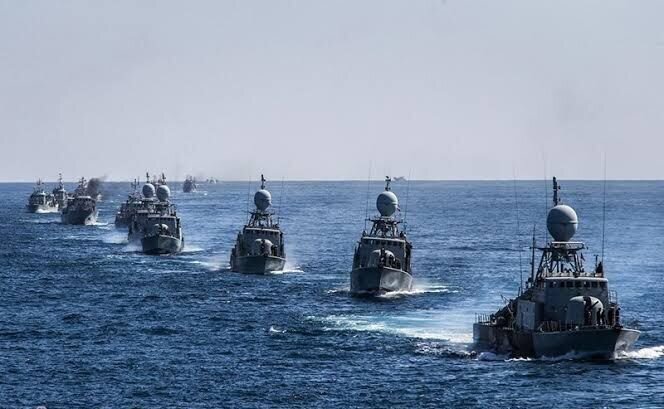Endogenous maritime security

TEHRAN – Iran’s initiative to launch a maritime coalition of countries of West Asia has reverberated across Asia, eliciting affirmative reactions from key powers in the continent.
Earlier this week, Shahram Irani, the chief commander of the Iranian Army’s Navy, dropped a bombshell that jolted the U.S. into reiterating its presence in the Persian Gulf.
Irani said a maritime coalition in the north Indian Ocean will be established with the participation of Iran, Saudi Arabia, the United Arab Emirates, Qatar, Bahrain, Pakistan, and India.
“Today, the countries of the region have reached the point [where they believe] that if there is to be security in the region, it can be done and established through synergy and cooperation,” he said, adding that new coalitions are taking shape in the region and beyond in this regard.
Irani continued, “Soon we will witness that our region will be free from any unjustified force and the people of the region will be dominant in their security field using their soldiers.”
The commander said Iran already had launched joint regional action with Oman. Saudi Arabia has entered this action, he noted. “The UAE, Qatar, Bahrain, Iraq, Pakistan, and India are also included,” Irani stated.
He pointed out, “Almost all the countries of the north Indian Ocean area have come to believe that they should stand by the Islamic Republic of Iran and jointly establish security with significant synergy.”
The U.S. was quick to dismiss the Iranian initiative. It described the Iranian proposed maritime coalition as defying reason. “It defies reason that Iran, the number one cause of regional instability, claims it wants to form a naval security alliance to protect the very waters it threatens,” US 5th Fleet and Combined Maritime Forces spokesperson Cmdr. Tim Hawkins said, according to Breaking Defense.
The U.S. response is clearly meant to discredit the Iranian proposal. But realities on the ground and the international reactions to the initiative attest to an entirely different trajectory.
The U.S.-led coalition in the Persian Gulf has received a major blow in recent months as even an ally as close as the UAE ceased to believe that the U.S. is capable of ensuring security in the Persian Gulf. This was on full display last week when the UAE formally announced its withdrawal from the U.S.-led Combined Maritime Forces operating in the Persian Gulf.
In a statement in late May, the UAE foreign ministry said, “As a result of our ongoing evaluation of effective security cooperation with all partners, two months ago, the UAE withdrew its participation in the Combined Maritime Forces.”
This regional resentment at the U.S. was accompanied by Pakistan and China welcoming Iran’s maritime initiative.
Wang Wenbin, China’s Foreign Ministry spokesperson, said China supports Iran’s push for a regional naval alliance. Responding to a question in this regard, he said, “Upholding the peace and stability of the Gulf region in the Middle East bears on the wellbeing of countries and people in the region and is of vital importance to safeguarding world peace, boosting global economic growth and keeping energy supply stable. China supports regional countries in resolving disputes and cultivating good-neighborliness and friendship through dialogue and consultation. We also support regional countries in seeking development through solidarity and keeping their future firmly in their own hands. As a good friend to regional countries, China will continue to play a positive and constructive role in promoting regional peace and stability.”
Although Pakistan did not take an official stance on the Iranian initiative, Pakistani media welcomed it. “Commander Shahram Irani’s initiative must find appropriate response from proposed member states. It is essential to look at the wider paradigm of cooperation in an age of new blocs,” Pakistani daily Express Tribune wrote. “The bonanza of the initiative in bringing India and Pakistan on the same page.”
Whether the Iranian initiative would become a reality remains to be seen. But the timing of the initiative and the concomitant spirit of regionalism currently prevailing in the West Asia region are a reason to believe that this proposed initiative will likely bear fruit. In the past, tensions and affected hostilities prevented any kind of meaningful maritime cooperation and paved the way for an increased presence of foreign forces in the region. This time, however, one can harbor hope for substantive regional cooperation given the wind of de-escalation that is currently blowing across the region.
